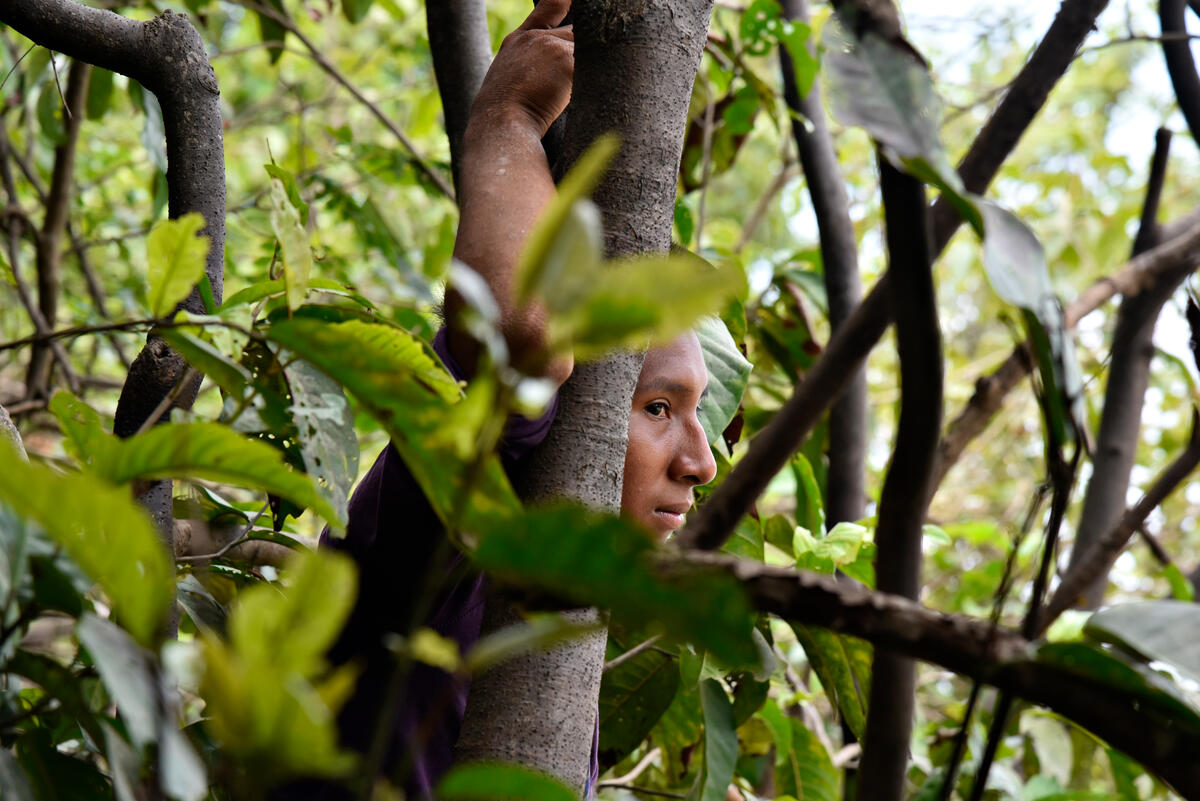Publications
FAO resources on Indigenous Peoples

©FAO/Adriano Gambarini/OPAN
This year's International Day of the World's Indigenous Peoples, observed on 9 August, focuses on "Protecting the Rights of Indigenous Peoples in Voluntary Isolation and Initial Contact."
But the question of Indigenous Peoples' rights and cultures, including their right to food and associated traditional practices, is of course much vaster. Browse our selection of publications to learn more about FAO’s work with Indigenous Peoples.
Indigenous Peoples’ food systems: Insights on sustainability and resilience from the front line of climate change
This publication offers a comprehensive overview of the common and unique sustainability elements within Indigenous Peoples' food systems. It explores aspects such as natural resource management, market access, diet diversity, governance systems, and the connections to traditional knowledge and indigenous languages.
White/Whipala Paper: Indigenous Peoples’ Food Systems
This White/Wiphala paper on Indigenous Peoples’ food systems is the product of a collaborative effort by Indigenous Peoples’ representatives, experts, scientists, researchers, and UN staff. Contributions from over 47 different units, organizations, and institutions across the seven socio-cultural regions have enriched this comprehensive document.
Sustainable Development Goal 16 & Indigenous Peoples’ Collective Rights to Land, Territories & Resources
Violence and conflict share a common origin: the lack of guarantees for Indigenous Peoples to securely and safely access their lands, territories, and natural resources. This situation has prompted Indigenous Peoples to mobilize in search of protection for their collective rights and to inform and organize their communities.
Forest Governance by Indigenous and Tribal People. An Opportunity for Climate Action in Latin America and the Caribbean
The document summarizes a report that, based on a review of over 250 studies, highlights the importance and urgency of climate action to protect the forests within the indigenous and tribal territories of Latin America, as well as the indigenous and tribal peoples who safeguard them. These territories encompass approximately one-third of the continent's forests.
Indigenous Food Systems, Agroecology and the Voluntary Guidelines on Tenure
The report outlines concrete steps to be followed in relation to the Voluntary Guidelines for Securing Sustainable Small-scale Fisheries in the Context of Food Security and Poverty Eradication, commonly known as the SSF Guidelines. It also addresses Indigenous food systems and the needs of fishers, among other topics.
Territorial management in Indigenous Societies – Study cases on the Khasi, Wayuu, Shipibo-Conibo and Moso peoples
In recent years, interest in the social and physical worlds of Indigenous peoples has increased, leading to a growing body of literature. However, more research is needed to document Indigenous knowledge and practices. This study, undertaken by FAO in collaboration with IGWIA and other partners, examines four matrilineal and matrilocal Indigenous societies: the Khasi, Wayuu, Mosso, and Shipibo-Conibo.
Further reading
- Compendium of community and indigenous strategies for climate change adaptation – Focus on addressing water scarcity in agriculture
- Women’s land rights and agrarian change: Evidence from indigenous communities in Cambodia
- Indigenous peoples' food systems & well-being: Interventions and policies for healthy communities
- Indigenous peoples' food systems: the many dimensions of culture, diversity and environment for nutrition and health
- Shifting cultivation, livelihood and food security: New and old challenges for indigenous peoples in Asia
- The Code of Conduct for Responsible Fisheries and Indigenous Peoples – An Operational Guide
- FAO Policy on Indigenous and Tribal Peoples
- Indigenous and Tribal peoples: Building on biological and cultural diversity for food and livelihood security
Additional resources
Contact
FAO publications [email protected]
